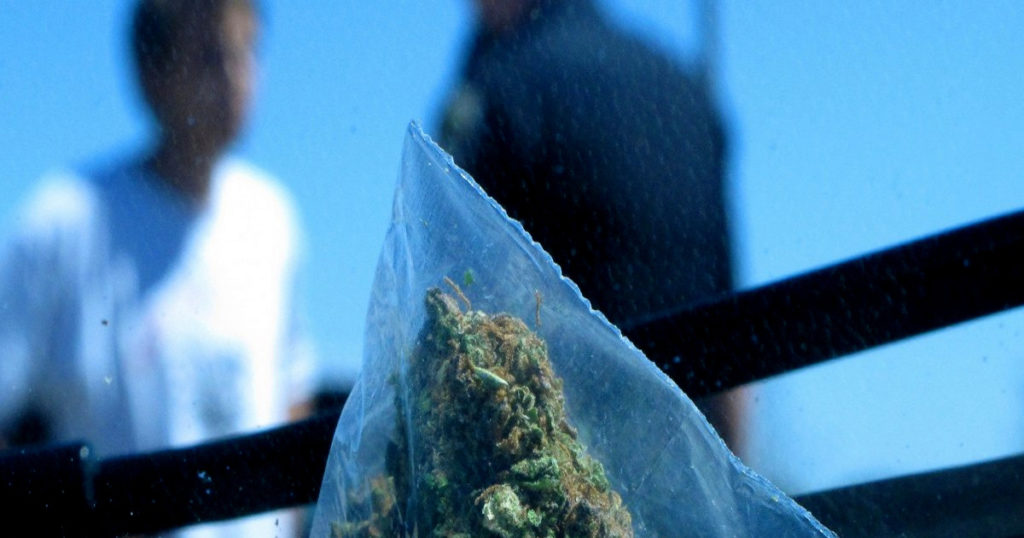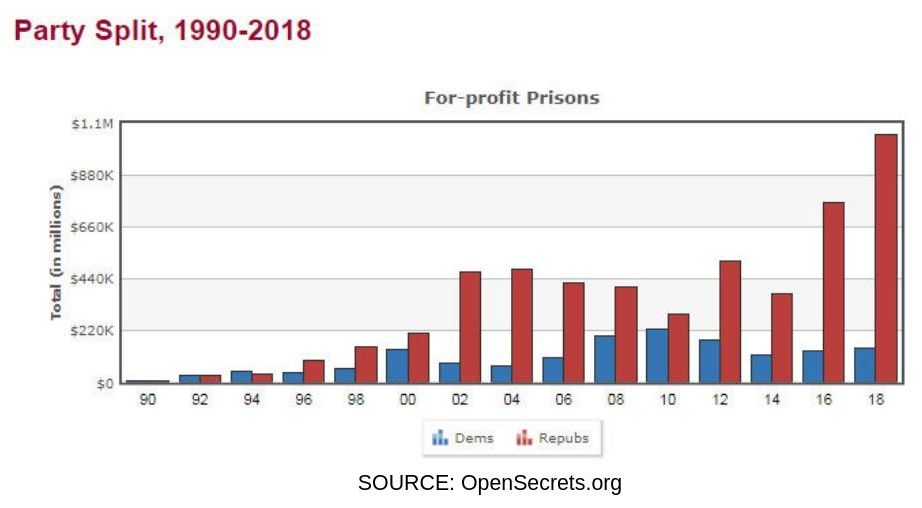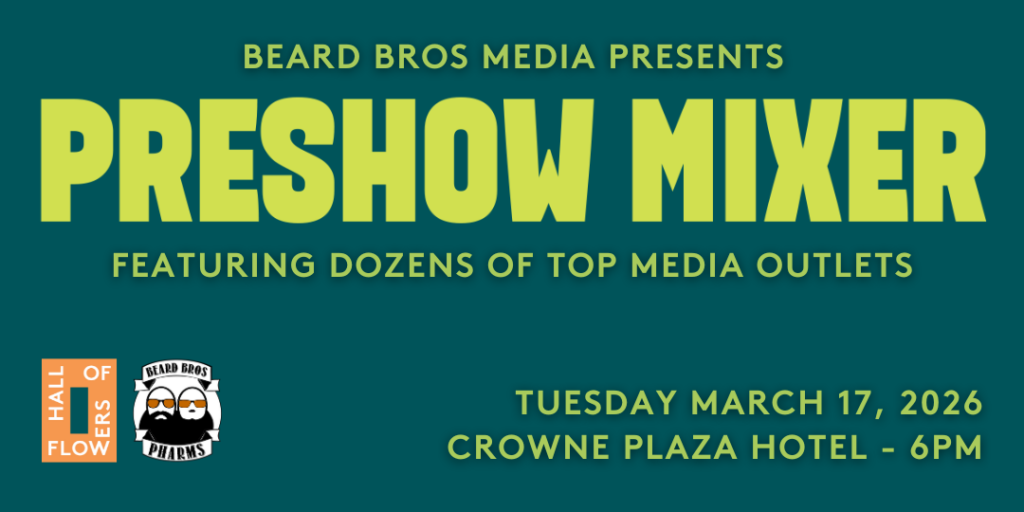
New Jersey Senator and 2020 presidential candidate Cory Booker raised a lot of eyebrows last week when in a television interview he made the claim that more people are being arrested in the U.S. for cannabis possession than for all violent crimes combined.
In case you missed it, his exact quote was, “We have people that have criminal convictions for doing things that two of the last three presidents admitted to doing. And so, we have a justice system that is not equal justice under the law. We have people who can’t get jobs, can’t get business licenses because of nonviolent drug crimes. . . and especially at a time when we’re legalizing things like marijuana. In 2017, we had more marijuana possession arrests in our country than all other violent crimes combined. And so, I’m going to fight to end this.”
This left many of his critics wondering exactly what strain he was smoking, but a simple fact check reveals that he is absolutely right. The watchdog website PolitiFact.com looked back at the past three years of available stats from the FBI’s Uniform Crime Reporting database and found that cops from coast to coast made an estimated 518,617 arrests for violent crimes in 2017. Violent crimes include murder and non-negligent manslaughter, rape, robbery and aggravated assault. In that same year (the most current year the public has access to) 599,282 arrests made for cannabis possession.
That is roughly 1 arrest for weed every 52 seconds in this country.
That is shameful.
Even if you set aside the comparison of offenses, arresting nearly 600,000 Americans over a plant is the real crime. The same numbers hold steady for 2015 and 2016 as well, though notably, cannabis possession arrests are on the rise despite the wave of legalization sweeping the nation.
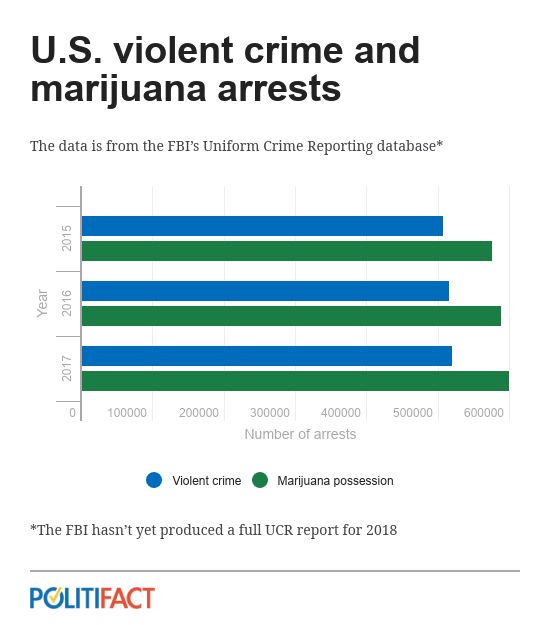
Michael Collins, director of national affairs for the Drug Policy Alliance calls it like he sees it, saying, “Marijuana is a gateway to the criminal justice system.” The numbers above back him up as it has become clear that law enforcement would rather go after notoriously non-violent cannabis users than the more dangerous work of tracking down and apprehending murders, rapists, and thieves.
This is nothing new. We can trace a straight line back from whoever got popped for pot while you read the last paragraph to the 1970’s and Richard Nixon declaration of the “War on Drugs”. As the late, great comedian Bill Hicks once said, “War on Drugs, you know what that implies? That there is a war being fought, and the people on drugs are winning it!”
Apparently, cops across the country didn’t get the joke as arrests have only continued to rise even though 2/3rds of Americans now think cannabis should be legalized nationwide. Even the DEA is boasting that they made 20% more cannabis-related arrests in 2018 than they did the year prior.
It is important to remember that an arrest simply means there was probable cause that a crime was committed. It doesn’t always mean a criminal charge was filed, or that a person was convicted of the suspected crime. However, it is impossible to ignore the rampant rise of prison populations here in the U.S. knowing what we know about the imbalance between cannabis vs. violent crimes in the eyes of most law enforcement offices.
A VICIOUS CYCLE
You may already know that the U.S. holds more citizens prisoner than any other country on the planet. Yep, more than Russia, or China, or Iran, or North Korea. . . We’re #1! We’re #1!. . .
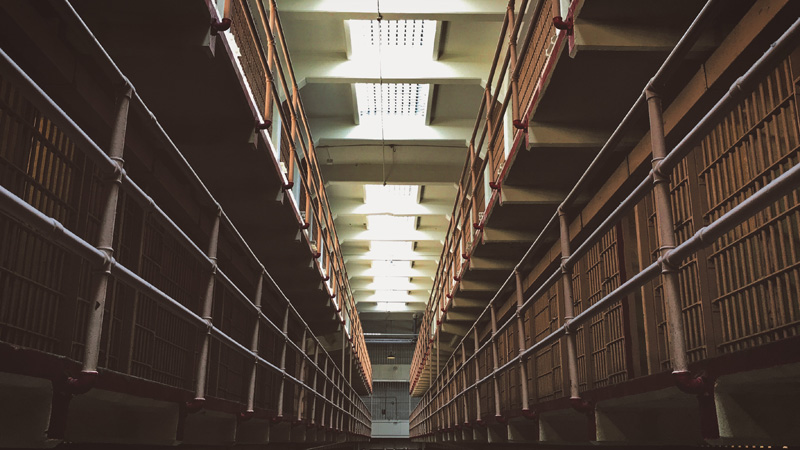
Roughly 1 in every 110 U.S. adults is currently behind bars and 1 in every 38 U.S. adults is under some form of correctional supervision. That is nearly three million people, or what a pun-friendly marketer would call “a captive audience”. This led to the birth of the private – or ‘for-profit’ – prison. Commoditizing prisoners is not a new concept, though. No, you need to go way back, even before the Civil War, to 1852 when a little place called San Quentin was constructed in Marin County up near San Francisco. But it was Nixon’s, and then Nancy Reagan’s, failed wars on drugs that fueled the boom of private prisons throughout the 1980’s and 1990’s, and even today it is estimated that about 1/5th of our nation’s prisoners are being held in one of 130 for-profit prisons strewn across our country.
Another contributing factor to the proliferation of the private prison in America is the vast amounts of money that these corporations spend to lobby politicians and gain influence in Washington D.C.
CoreCivic is the largest private prison contractor in the country and they alone have maintained a $1.4 million annual lobbying budget in the nation’s capital for twenty years and counting. That may seem like a lot of money, and it is, but it is nothing more than an investment for CoreCivic and companies like them – an investment that always pays off.
CoreCivic’s reported annual revenue is somewhere in the neighborhood of $1.8 BILLION. This is a 500%+ rise from where the company was at in the year 2000. The math is easy though; with roughly 80,000 beds behind its bars, and an average cost of $23,000 per year per prisoner, you land on $1.84 Billion. But how can they make money if a prisoner costs $23k/year? That’s the sick part, the government pays these prisons that much to take the inmates using your tax dollars and mine.
They take a sliver of that guaranteed revenue each year and soak lawmakers with trinkets and tee-times laundering that blood-money over and over to ensure that things like “3-Strikes Laws” and cannabis prohibition always have strong support.
RENT-A-PRISON
In 2016, the U.S. Department of Justice vowed to put a halt to contracting for-profit prisons after an internal report revealed that inmate-on-inmate violence was 30% higher in these institutions and that prisoners were being placed in solitary confinement due to overcrowding in general population.
Then we had an election and the new Attorney General, Jeffrey Beauregard Sessions III, reversed course and reassured CoreCivic and its peers not to worry, that it would still be business as usual, sending stocks soaring for private prisons. After donating a measly $250,000 directly to President Trump’s Inaugural Committee, CoreCivic and one other group were granted a joint contract totaling over $985 Million to run the migrant detention facilities that have made so many headlines along our southern border with Mexico.
This is not a new problem, either. In 2015, long before Obama left office, roughly 50% of migrants being detained at our border were being held in for-profit facilities. That total was double where it was at a decade earlier under Dubya.
But once again money talks and the numbers don’t lie and the resurgence of this draconian system since Republicans took the White House, the Supreme Court, and the Senate in 2016 is undeniable, as the chart below illustrates.
IT AIN’T LEGAL YET
Is there any doubt as to what side of cannabis reform vs. cannabis prohibition that these for-profit prisons sit on? They are yet another well-funded opposing force to our progress and the sick part is that they are funded by our tax dollars. Even if they have empty beds, the government guarantees a certain quota and must pay anyway. That is a sick and twisted conflict of interests and further incentive for the powers that be to keep encouraging cops to bring cases to court, no matter what they are. It’s a numbers game for them – we are paying for all these empty beds, let’s fill ‘em up!
Though we are on an inevitable course toward nationwide cannabis legalization, what will it look like? Will we still find ways to arrest hundreds of thousands of people each year for it? Will we still see National Guard helicopters thundering through the most rural regions of the Emerald Triangle?
The sad truth is, as long as these capitalist companies are able to pour millions of dollars into national politics each year just by foraging the spare change out of their sofas, we are bound to see dimebag busts continue to be about as far as most cops are willing to go to protect and serve.



